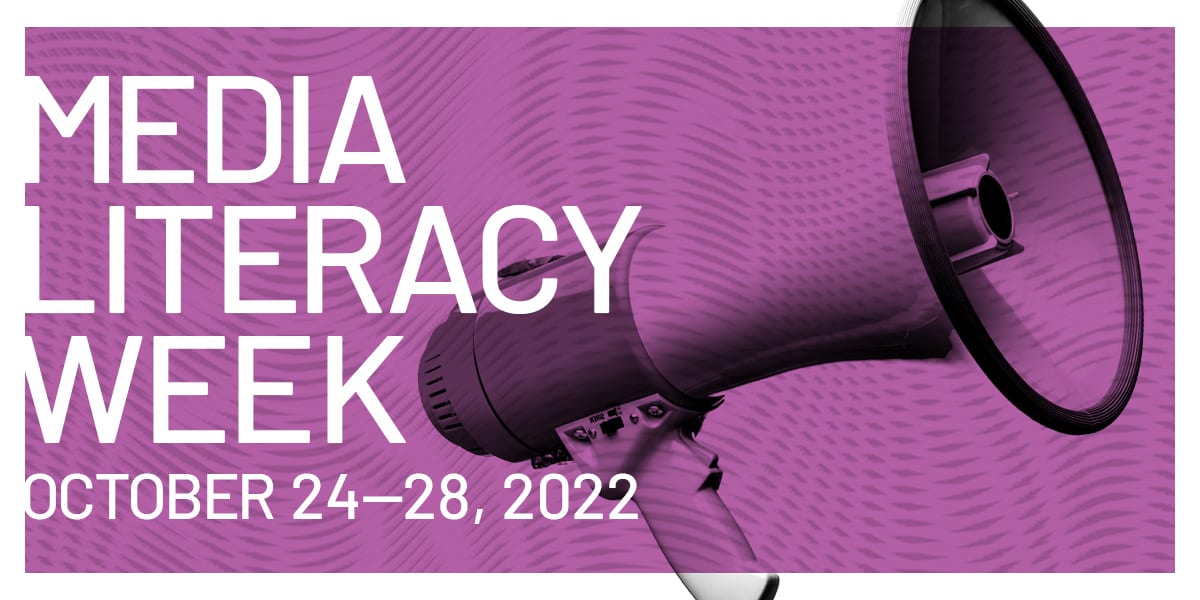
It’s #MediaLitWk across Canada! To survive and thrive in a digital age, we all need to know how to access digital media and how to use, understand and engage with it to our full potential. Media Literacy Week is an annual event that aims to put the spotlight on the essential digital literacy skills needed by today’s digital citizens.
There are many aspects to media literacy skills in today’s technologically driven social and professional worlds. Literacy is more than reading and writing. It’s also important for all of us to be able to read the media messages that inform us, entertain and sell to us on a daily basis.
Use
Use represents the skills needed to safely and effectively use media, computers and the internet. Think of these skills as the physical technology such as smartphones, laptops, software for developing social media content, and other tools that promote positive physical and mental health and reduce safety risks.
Understand
Understand is the set of skills that help you to comprehend, put into context, and critically assess digital media to make informed decisions about what we do and encounter in the online world. This includes understanding how technology affects our behavior, perceptions, beliefs and feelings about the world around us as well as understanding how media influences our views about what’s real, what’s important and whose voices matter.
Engage
Engaging with digital media includes being able to adapt what we produce for various audiences. As active participants in the digital world we create and communicate using images, video and sound. Reflecting on the social and political implications of media, media tools for community engagement ensures that Canadians are active contributors to digital society.
Access
Access involves safely and ethically finding and navigating media. This includes technical knowledge needed to get online, and the ability to navigate networked media using hyperlinks, search engines and databases.
Verify
Verification skills cross all four competences above. From knowing how to effectively access information through search engines and databases, to using verification tools like fact-checkers and reverse image search, to understanding how to recognize bad-faith arguments and cherry-picked statistics, to engaging with misinformation by correcting or debunking it by sharing accurate, reliable information with our online communities. These skills become increasingly important as Canadians engage in the digital society, critically access information and recognize the influence of content creation.
Visit the MediaSmarts website to explore games, workshops, tutorials and tip sheets related to each of the media literacy skills above.
This reading list celebrates media literacy week with multiple perspectives on the implications of media and technology on individuals, societies and our collective future.


Add a comment to: Media Literacy Week